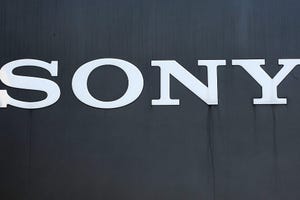Reinventing the Bandage with Hydrogels
September 25, 2013
It's not often that a contract manufacturer enters the medical device market. Alliqua Inc. (Langhorne, PA) has made that jump, and has re-imagined itself as a maker of wound-care products. Last year, two of its products, SilverSeal and Hydress, received regulatory clearance from FDA. It began selling those products in June of this year.
Alliqua, which is a company formed by multiple companies uniting, will also continue to make hydrogels on a custom basis.
The company makes hydrogels that feature a 3-D cross-linked network of water soluble polymers. The network can be modified to suit specific applications in woundcare and deliver drugs and cosmetic compounds.
Alliqua's electron-beam cross-linked hydrogels are made solely of water and polymer. "We don't use any additional chemistry to do the crosslinking for us," says Gregg Robb, manufacturing head at Alliqua. "We don't have UV enhancers, catalysts, or anything like that." The advantages of the electron beam is that it enables high water content and purity. "It is a very pure product which minimizes the risks of skin irritation. Gels that use more chemicals are more likely to cause irritation over prolonged use."
Alliqua is one of two companies in the United States that make hydrogels using the technique. "In the custom built market, we compete with each other," Robb says. "We make more of the wound-care product, they make more of the electrode product."
The path to market for such hydrogels depends on the additives that are added. "If there are no additives in it and it is a straight woundcare product with no claims, other than the fact that it acts as a dressing, it is an exempt device. Hydrogels without special additives are exempt," Robb says. "If you put an additive in it that you are going to make claims against, that may change it to a Class I or Class II device. When you start putting drugs in it, you've changed it into a pharmaceutical."
Incorporating Silver
The company's Silverseal product is mostly used for dry wounds; the dressings' high water content helps keep in moisture. "Silver is actually the best anitmicrobial known to man. It has been used for centuries," says James Sapirstein, CEO of Alliqua Biomedical. "We do have coverage against MRSA and even pseudomonas infections. Granted, these are topic infections, they are not systemic infections. If you have someone who has these bacteria in the blood that is a whole different story. You will need to have intravenous antibiotics. But for topical infections, silver works really well and we have data showing our antimicrobial effect. "
Serving the OEM Market
For OEMs, the company can create hydrogels with specific liner or release property or thickness or colors and so forth. "There are a variety of things we can do even with the same gels to give them individuality in the marketplace," Robb says. "A lot of times, it is a basic hydrogel formulation and you change it from a construction standpoint, where you take the hydrogel formulation and potentially put an additive in it."
The company can make electrode hydrogels, making them conductive. These products differ from those used for woundcare in that they generally offer more adhesion. "For the woundcare gels, it typically has a higher water content but really low adhesion. That is good for the wound," Robb explains. "If you have something that is for the electrode market, you want more adhesion, you want something that is skin friendly but stays in place. We customize things based on the needs of our customers and that can be end users or converters who are actually converting them for a third party."
Brian Buntz is the editor-in-chief of MPMN and Qmed. Follow him on Twitter at @brian_buntz.
About the Author(s)
You May Also Like


